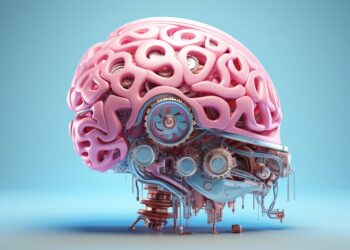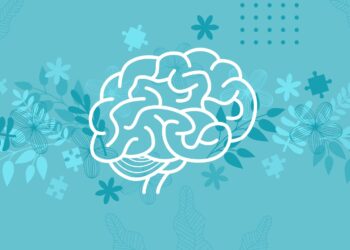Tatiana Rivera Cruz, LCSW at ADHD Advisor says: Hormonal changes in men can occur throughout different stages of life, impacting physical, emotional and mental health. These changes in men can significantly impact their health and quality of life. Understanding and managing these changes through lifestyle modifications, medical interventions and regular health check-ups can help maintain hormonal balance. Hormonal changes affect mental health by influencing neurotransmitter function, brain chemistry, emotional state and cognitive well-being. Hormonal changes in men, particularly fluctuations in testosterone levels, can significantly impact mental health. Here are some key points:
- Testosterone levels: Testosterone naturally decreases with age, typically starting around age 30. This decline can lead to symptoms often referred to as “andropause,” which can affect mood and energy levels.
- Mood and emotional health: Low testosterone levels are associated with increased feelings of depression, anxiety, irritability, and fatigue. Men may also experience a lack of motivation and reduced self-confidence.
- Cognitive function: Hormonal changes can affect cognitive functions such as memory and concentration. Low testosterone has been linked to an increased risk of cognitive decline and conditions like Alzheimer’s disease.
- Sleep patterns: Hormonal fluctuations can disrupt sleep, leading to insomnia or other sleep disorders. Poor sleep quality further exacerbates mental health issues like depression and anxiety.
- Sexual health: Changes in testosterone levels can affect libido and sexual performance, which can, in turn, lead to emotional distress and impact overall mental well-being.
- Stress and cortisol levels: Chronic stress can increase cortisol levels, which can suppress testosterone production. Elevated cortisol levels can lead to increased anxiety and depression.
- Lifestyle factors: Diet, exercise, and lifestyle choices also influence hormone levels. Regular physical activity and a balanced diet can help maintain hormonal balance and support mental health.
- Medical conditions: Conditions such as hypogonadism (low testosterone production) can cause significant hormonal imbalances, requiring medical intervention to manage symptoms and improve quality of life. At this point, some people might wonder, what are peptides, and how do they relate to hormonal health? Peptides are short chains of amino acids that can act as signaling molecules in the body. Certain therapeutic peptides are being studied—and sometimes prescribed—for their role in stimulating hormone production, improving sleep, supporting cognition, and even enhancing mood.
Discussing any necessary treatment as needed. As part of treatment may include medication, having a balanced nutrition (fruits, vegetables, lean proteins or whole grains), healthy fats like fish, green powders, nuts and seeds that helps maintain hormone levels, avoid processed foods, regular exercises like strength training, aerobic exercises like walking, running or cycling. These exercises help improve cardiovascular health and reduce stress. Sleep hygiene also helps improve hormone levels. Having a regular sleep schedule, maintaining a consistent schedule (7-9 hours) and a healthy sleep environment. Practicing relaxation techniques such as deep breathing, medication or yoga reduces stress. Mindfulness also helps stay present ans manage anxiety.

There also significant hormones that can influence men’s mental health. These hormones are:
- Testosterone (mood and Depression): Low testosterone levels are often associated with symptoms of depression, irritability, and anxiety. Higher levels generally support mood stability and well-being.
- Cognitive Function: Adequate testosterone levels are linked to better cognitive function, including memory and concentration.
- Cortisol (stress response): Known as the stress hormone, elevated cortisol levels due to chronic stress can lead to anxiety, depression, and cognitive impairment.
- Sleep Disruption: High cortisol levels can interfere with sleep, further affecting mental health.
- Estrogen (emotional Stability): Men also produce estrogen in smaller amounts, and imbalances can affect mood. Elevated levels, especially relative to declining testosterone, can contribute to mood swings and depressive symptoms.
- Thyroid Hormones (Energy and mood): Hypothyroidism (low thyroid hormone levels) can cause fatigue, depression, and cognitive dullness. Hyperthyroidism (high thyroid hormone levels) can lead to anxiety, irritability, and mood swings.
There also impacts on Mental Health Across Different Stages:
- Puberty (mood swings): The surge in testosterone can lead to emotional instability and mood swings.
- Adulthood (mental clarity and mood): Stable testosterone levels generally support mental clarity and a balanced mood. However, stress and lifestyle factors can disrupt this balance.

- Cortisol Impact : High-stress levels can lead to chronic cortisol elevation, impacting mood and cognitive functions.
- Aging (andropause): The gradual decline in testosterone can lead to depressive symptoms, anxiety, and cognitive decline.
- Hormonal Imbalance: The relative increase in estrogen can further affect mood stability.
- Lifestyle Factors (exercise): Regular physical activity can help maintain healthy hormone levels and improve mood.
- Diet : A balanced diet supports hormone production and overall mental health.
- Sleep : Quality sleep is crucial for hormonal balance and mental well-being.
- Stress Management: Techniques such as mindfulness, meditation, and relaxation exercises can help manage cortisol levels and improve mental health.
- Medical Interventions (Hormone Replacement Therapy (HRT): For those with significantly low testosterone, HRT can help alleviate symptoms of depression and cognitive decline, though it must be carefully managed due to potential side effects.
- Psychotherapy and Medications: Counseling and, if necessary, psychiatric medications can help manage mental health issues related to hormonal changes. Understanding and addressing these hormonal shifts is especially important for maintaining mental well-being in men, particularly in conditions like anxiety or ADHD, which may benefit from a medical prescription. Regular check-ups and a proactive approach to lifestyle choices can also help reduce the negative impact of hormonal fluctuations.
Understanding these connections helps in identifying symptoms and seeking appropriate treatment, such as hormone replacement therapy, lifestyle changes, or psychological support, to improve mental health outcomes.














Discussion about this post